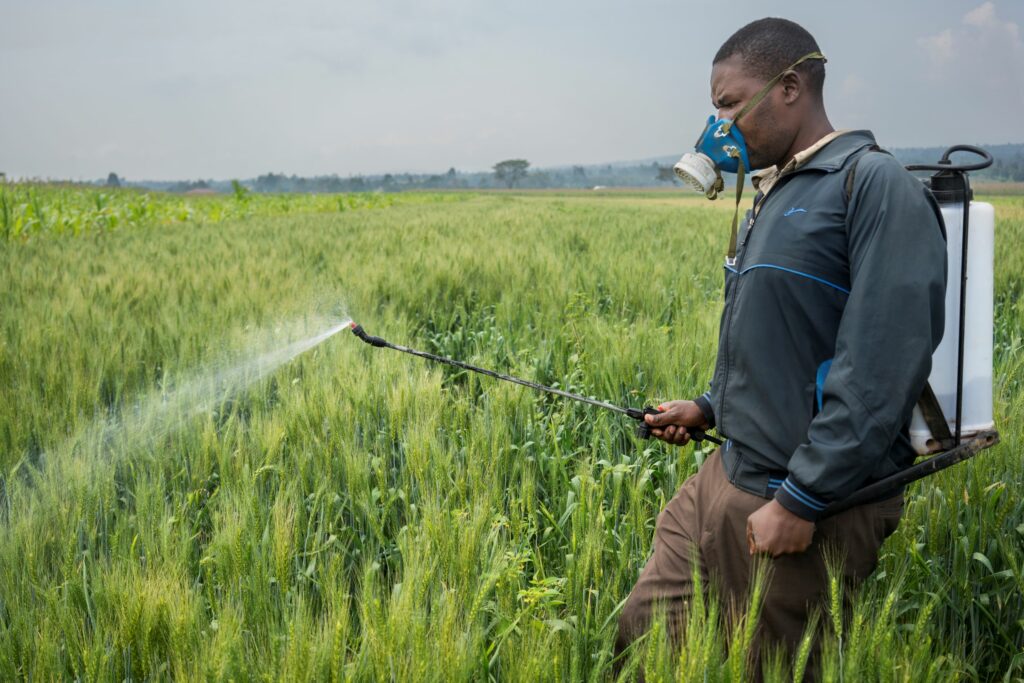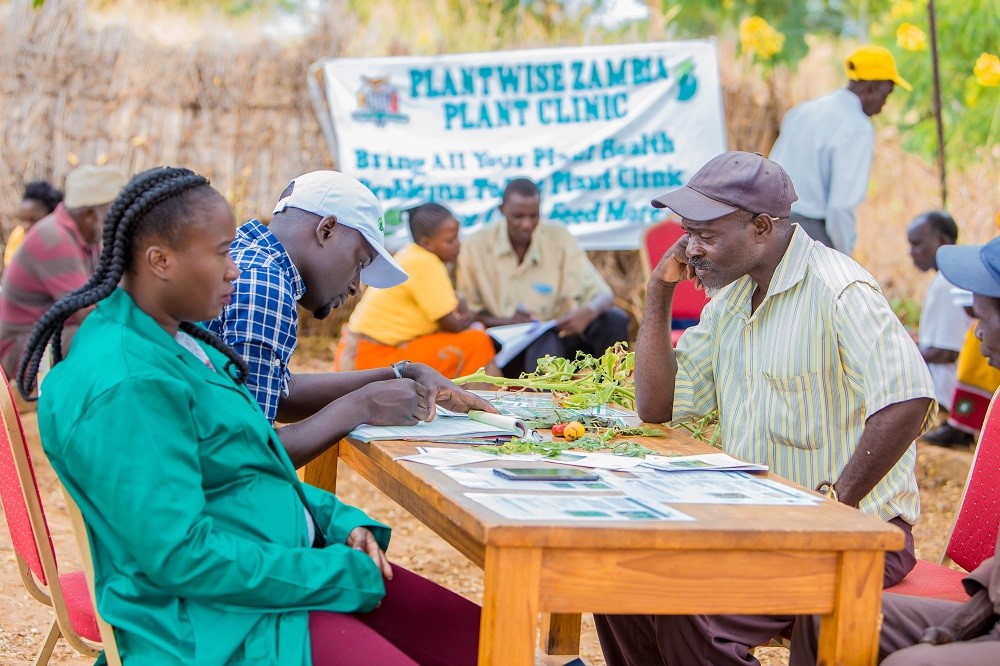Three policy recommendations to reduce pesticide risk
Pesticides can provide rapid means of controlling pests and prevent crop losses, but they can also pose a major risk to humans, animals and the environment. A recent research paper, led by CABI’s Dr Justice Tambo, examined whether plant clinics can reinforce the judicious use of pesticides among farmers in Rwanda and Zambia. It also…
Plantwise plant clinics improve proper use of pesticides and highlight need to wear Personal Protective Equipment
The increasing prevalence of devastating crop pests, such as the Fall armyworm (FAW), has led to a growth in pesticide use among smallholder farmers in sub-Saharan Africa. Crop pests are a major limiting factor of agricultural productivity growth worldwide and in Sub-Saharan Africa, in particular, crop losses due to pests are predicted to be 40%…
South-South collaboration helps in the fight against invasive pests
Invasive species cause widespread devastation and huge economic losses to smallholder farmers across the world, especially in sub-Saharan in Africa. Invasive species not only directly undermine farmer’s ability to achieve food security, they also affect smallholder agribusiness making farmers unable to link to profitable food value chains and international agricultural trade networks.
Introducing APHLIS: The African Postharvet Losses Information System
Plantwise have recently been investigating APHLIS data, a great source of information on postharvest losses in Sub-Saharan Africa. The system is run by a network of local experts who collect and supply data. Using a shared database and a Losses Calculator APHLIS provide estimates of weight losses for cereal grains at a national and provincial…
Managing plant pathogens by enhancing ecosystem services
From the 8th-12th April experts met in Bellagio, Italy to develop a strategy to mitigate the effects emerging plant diseases are having on crops in sub-Saharan Africa. Among these experts were Plantwise staff. A major theme throughout the conference was ecosystem services and how agricultural biodiversity can enhance the provision of these services, creating resilient agro-ecosystems. Click on the…
A Tale of Two Worlds: Favourable Projections, Looming Dearth
It is the best of times, it is the worst of times, it is the season of plenty, it is the season of famine – in short, it is that time when the positive medium term outlook for world agriculture is tempered by the “usual suspects.” For the fourth month running, the FAO Food Price…
Keeping an eye on banana disease
Dr. Fen Beed is an experienced plant pathologist based at the International Institute of Tropical Agriculture (IITA), Dar es Salaam, Tanzania. He leads research for development activities to mitigate the impact of diseases of maize, soybean, cowpea, cassava, banana and vegetables and promotes plant diseases on problematic weeds. The first and critical step to manage…
Research Projects Into Improving Crop Plants Receive Major Funding
The University of Illinois has received a five year, $25 million grant from the Bill & Melinda Gates Foundation to improve the photosynthetic properties of key food crops, such as rice and cassava. The project, entitled ‘RIPE- Realising Increased Photosynthetic Efficiency’ has the potential to benefit farmers by improving the productivity of staple food crops. Increasing photosynthetic efficiency…
Cassava virus resistance breakthrough for Africa
One of the worst diseases of the tuber crop, cassava, in sub-Saharan Africa is Cassava brown streak disease (CBSD). Since its resurgence in East Africa in recent years, it is now spreading to Central and Western Africa. The other major disease of cassava in this region, Cassava mosaic disease (CMD), can also cause widespread damage…
Solution to devastating weed draws closer for sub Saharan Africa
Striga, commonly known as witchweed, is a group of parasitic weeds found in over a third of cereal crops in sub Saharan Africa (SSA). Crops typically yield at least 40% less when they are parasitised by Striga, causing an estimated US$ 7 billion loss and reducing the food security of millions.



